This piece originated from a discussion about climate change with an asylum seeker from Niger who currently lives in Berlin. He asked his family to send photographs of the land they attempt to farm. the discussion led to a reconsideration of the intricate relation between environmental factors and the emergence of refugee crises.
“The Sahelian rural population is considered to be one of the most vulnerable on earth [1,2]. This
vulnerability is partly caused by the variability of the West African monsoon, the main water resource for
agriculture in these areas. During the 1970s and 1980s, the Sahelian population experienced several
droughts with severe consequences [3,4]. Since the end of 20th century, Sahelian countries have begun
suffering from the effects of heavy rains and devastating floods in many parts of the Niger basin.” (1)
The Sahel, a belt from Senegal to Sudan, is on the frontline of climate change. The precarity of livelihoods results in extreme poverty and famine, as well as early marriages, high birth rates and conflicts between different ways of life that spill over into violence. Niger is one of the worst-hit countries in the region.
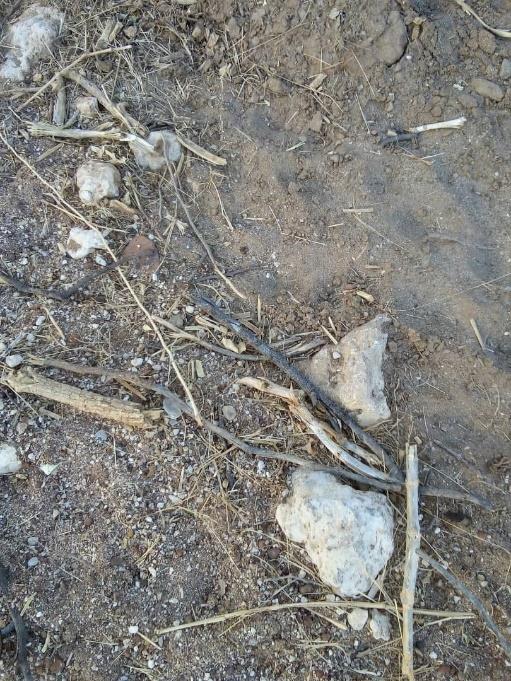
Niger ranks lowest on the United Nations Human Development
Index – 187 out of 187 countries (2) and has the world’s highest rate of
child marriage (76.3%)3 as well as the world’s highest birth rate. (4)
Unsurprisingly, Niger is one of the youngest countries in the world.
In 2015, the median age of Niger’s population was less than 15,5
the age my friend Mahmoud was when he fled his country.
The environment is degrading at a fearful rate: severe drought is
followed by floods, topsoil is lost, landscapes slide into desert. The
International Crisis Group (2021) records the flood damage between
2000 and 2018 in Niger: ‘more than 1,700,000 people affected over
almost 4,000 settlements and 115,000 destroyed houses.’ (6)
I talk to Mahmoud about climate change, and his family sends him photos
of the damaged land. In the first, the legacy of flooding is clear in
the pattern of debris.
Mahmoud is now 34. We first met when he was 21, almost half a lifetime ago. When he arrived in Italy, no one listened to his story of the violence that led to his father’s death, to his brother’s disappearance and the visible scarring on the back of his own head. He could not be understood, in any case, since he was interviewed in Arabic but did not understand the language. Because of Dublin Regulation, no other country can review the Italian refusal of his asylum claim. (7)
Italy tells him to leave the country – he does -and then the other countries send him back to Italy – which again tells him to leave. He is currently in Berlin, still stuck in limbo. Mahmoud is a quick learner: he is now fluent in Arabic, English and Italian as well as his native Hausa. He could work and thrive, if given half a chance. Yet under Pritti Patel’s new immigration plan he would one of those liable to deportation back to Niger, since he arrived in the UK in the back of a lorry.
Climate change is still not seen as a genuine reason for granting asylum. Even when, as in Niger, rapid environmental decline is triggering internal conflicts and fuelling regional instability, resulting in an outward flow of people desperate for safety.
- 1 Fiorillo E, Crisci A, Issa H, Maracchi G, Morabito M, Tarchiani V. ‘Recent Changes of Floods and Related Impacts in Niger
Based on the ANADIA Niger Flood.’ Climate. 2018; 6(3):59. https://doi.org/10.3390/cli6030059 - 2 https://www.bbc.co.uk/news/world-africa-
27619295#:~:text=Niger%20also%20has%20one%20of,including%20the%20majority%20Hausa%20community - 3 https://www.savethechildren.org.uk/content/dam/global/reports/advocacy/child-marriage-niger.pdf
- 4 https://www.theguardian.com/global-development-professionals-network/2017/mar/15/why-have-four-children-when-you-could-have-seven-contraception-niger
- 5 https://www.statista.com/statistics/447733/average-age-of-the-population-in-niger/#:~:text=In%202015%2C%20the%20median%20age%20of%20Niger’s%20population%20was%2014.9%20years
- 6 Fiorillo et al
7 https://www.unhcr.org/4a9d13d59.pdf
8 https://theconversation.com/niger-has-the-worlds-highest-birth-rate-and-that-may-be-a-recipe-for-unrest-108654
Mahmoud worries about his mother. In her fifties, she nearly died a few years ago and is still unwell. His family are scattered around Tahoua where they try to farm, but the area is alternately affected by droughts and floods. Farming alone can barely support life. His family sends a very short video, stills from which appear at the bottom of this page.
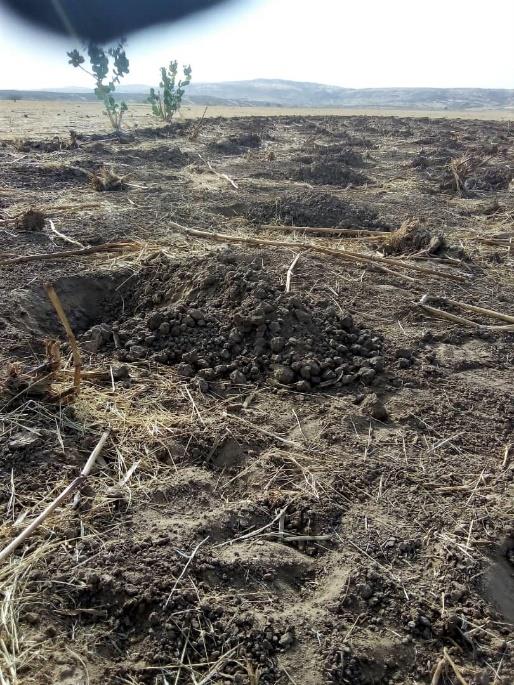
In the second photograph the arid plain stretches for miles with holes dug to break the baked crust of the soil which otherwise deflects water from sinking into the soil, and hardens over struggling seedlings.
This work is back breakingly hard. For someone who has spent 19 years in Europe, it would be difficult to survive in such a harsh environment.
Mahmoud is unable to gather fresh “evidence of persecution”, after such a long time away. Yet he would be in danger if he were ever sent back. Banditry killed his father and remains a threat in the area. (9)
The Crisis Group reports that local tensions are increasingly pitting pastoralists against herders:
The map shows that the area of greatest unrest includes southern Tahoua, where Mahmoud’s family live. If he were returned, he would become a prime target for kidnappers, who assume anyone coming from Europe has money.
The same area is experiencing armed incursions of Boko Haram from across the border with Northern Nigeria (11) – and Mahmoud’s long sojourn in Europe would make him a clear target also for this group.
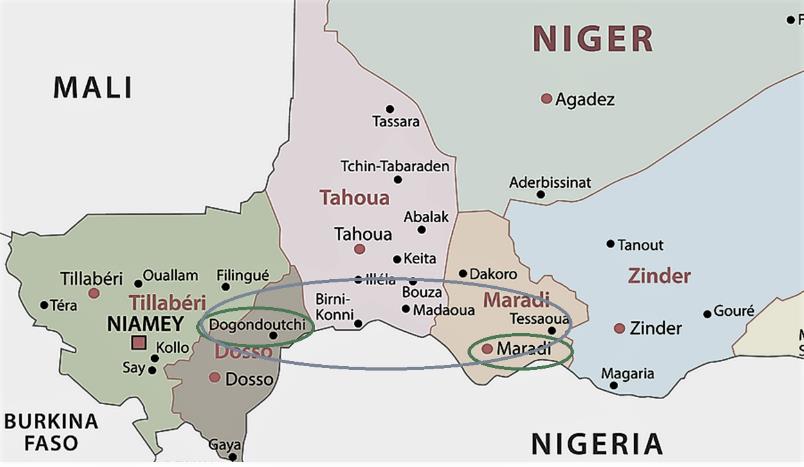
Just as the climate becomes increasingly erratic, generating a new generation of climate refugees across the world, the UK government has slashed funding for overseas development. In Niger, this will mean cutting water and sanitation projects, family planning support and girls’ education. Yet investing in these core areas is vital to help stabilise a country where climate change is causing violence that threatens to spiral into open warfare, which in future will generate more refugees like Mahmoud and whether the UK government recognises this or not they will have contributed to an increase in climate
change, regional instability and refugees.

- 9 Fiorillo et al
- 10 Fiorillo et al
- 11 Fiorillo et al
Just as the climate becomes increasingly erratic, generating a new generation of climate refugees across the world, the UK government has slashed funding for overseas development. In Niger, this will mean cutting water and sanitation projects, family planning support and girls’ education. Yet investing in these core areas is vital to help stabilise a country where climate change is causing violence that threatens to spiral into open warfare, which in future will generate more refugees like Mahmoud and whether the UK government recognises this or not they will have contributed to an increase in climate
change, regional instability and refugees.
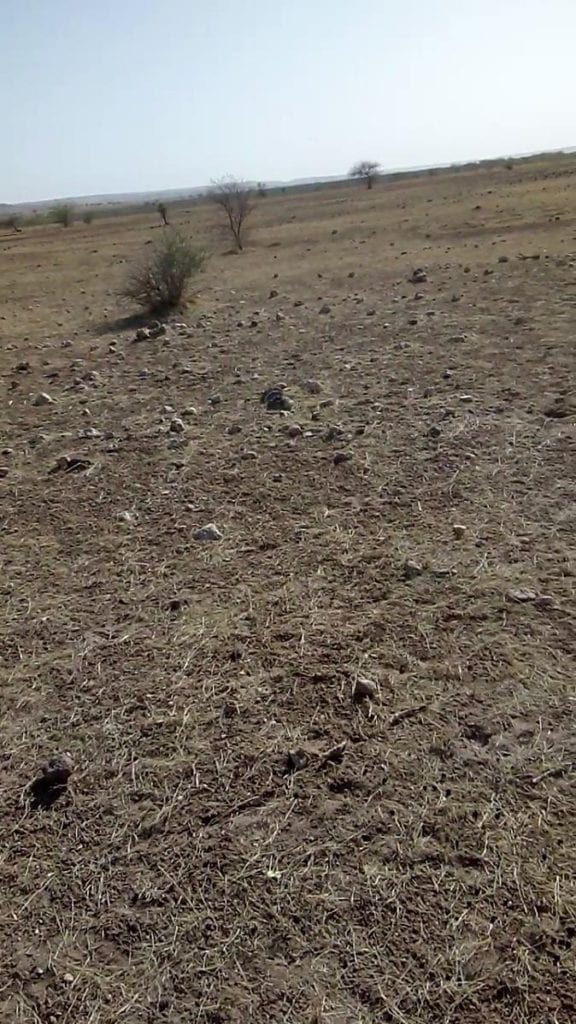
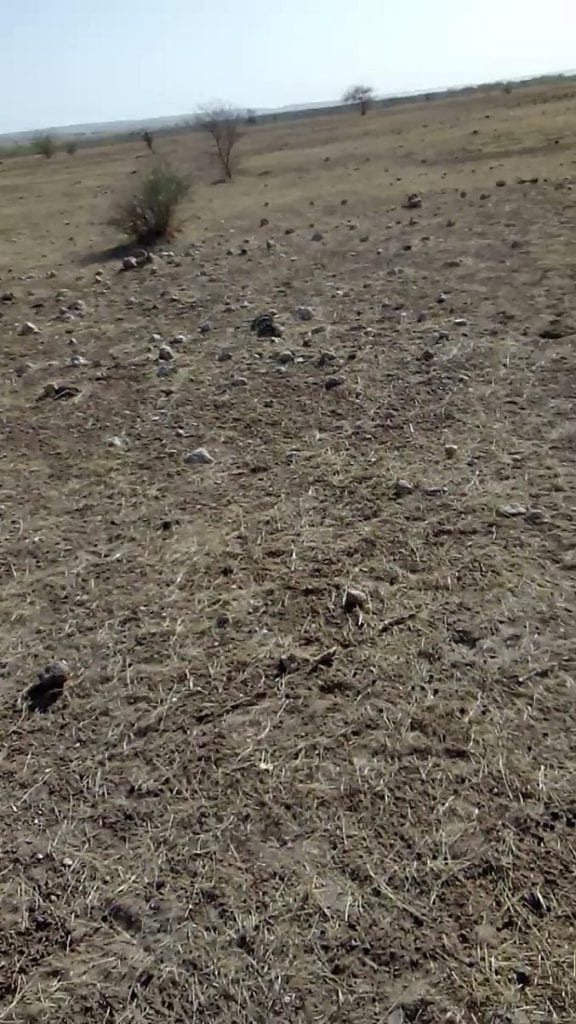
If you have enjoyed reading this blog post please share by clicking the buttons below. Sharing will also help us get our message to more people.